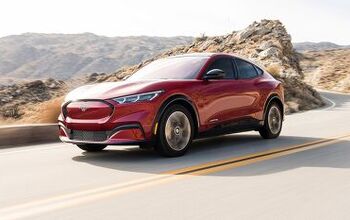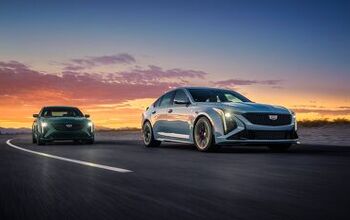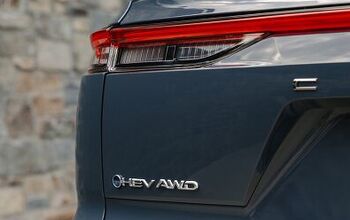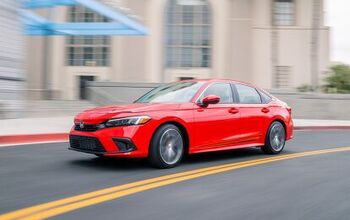Indianapolis Muses Solution to Failed EV Program, Asks for Help

Indianapolis’ electric car-sharing program, BlueIndy, died in May. Failed green initiatives are fairly common these days, but they remain an important exercise in finding out what works and what doesn’t in order for progress to be made. Unfortunately, that doesn’t preclude host cities from having to deal with the aftermath — and Indiana’s capitol now needs to decide what’s to be done with the EVs and their stations.
BlueIndy lasted four years, with the company announcing it was forced to cease operations because it “did not reach the level of activity required to be economically viable.” The plan was to provide an eco-friendly alternative to car ownership, though Indy citizens seemed less eager than their leadership. This has left the city with dozens of small, relatively new EVs waiting to be crushed and roughly 90 charging stations it has no idea what to do with.
Naturally, it’s asking for advice.
According to the IndyStar, the charging stations are still owned by parent Bolloré Group but are connected to the city’s electrical infrastructure and include about 400 parking spaces. Indianapolis has until September 21st to decide if it wants to buy the space or just let come what may. While the price point isn’t clear, it’s bound to be a sizable sum — even if BlueIndy’s seeking of greener pastures results in a sweeter deal than it would gotten otherwise.
“We continue to be mindful that the best solution may look different on a station by station or on a neighborhood by neighborhood basis,” Mayor Joe Hogsett said last week. “One size does not necessarily fit all.”
Turning those spaces back into public parking is probably desirable for the city, as it has relatively high vehicle ownership rates. However, if we’re still assuming EVs will become increasingly dominant, it might not be a bad idea to maintain a charging infrastructure that has basically fallen into your lap. Either way, Indianapolis will need to address its own needs — which is why it’s asking for help.
From IndyStar:
The city plans to solicit requests for information in mid-June on how to use the kiosks and charging stations above ground. The electrical infrastructure underground is owned by Indianapolis Power and Light, which the city also has been in contact with.
City officials say they want to consider all options in order to possibly take advantage of existing infrastructure.
BlueIndy has basically faulted Indianapolis residents for not getting with the program and left them with some parting thoughts as it refocuses on BlueLA — its Californian-based counterpart. “We believe that the continued reliance and predominant use of traditional personal vehicles is not sustainable long term in a growing urban environment and the need for additional mobility options to complement operators in Indianapolis including BlueIndy, IndyGo and the Pacers Bikeshare is significant,” the company said in its goodbye press release.
It also said that Indianapolis-based Bolloré Bluecars used for its services will be transported to LA after some repairs. Yet the glut we’ve seen amassed at Zore’s Inc.’s tow yard doesn’t seem to foreshadow anything more than the whole lot being crushed. You don’t stack cars three high if you plan on reusing them, and the relatively small urban fleet makes us doubt that these basic EVs all suffered irreparable damage. Many seem to have been in good working order upon their arrival and are only at the junkyard to be harvested for spare parts.
“Some of the cars with body damage are indeed being scrapped after the LMP batteries and key components/parts have been removed and stored,” James Delgado, vice president of Blue Systems, told local outlet WTHR. “[Other vehicles] are being held in storage and eventually will be shipped to Los Angeles.”
[Image: WTHR/ YouTube]

A staunch consumer advocate tracking industry trends and regulation. Before joining TTAC, Matt spent a decade working for marketing and research firms based in NYC. Clients included several of the world’s largest automakers, global tire brands, and aftermarket part suppliers. Dissatisfied with the corporate world and resentful of having to wear suits everyday, he pivoted to writing about cars. Since then, that man has become an ardent supporter of the right-to-repair movement, been interviewed on the auto industry by national radio broadcasts, driven more rental cars than anyone ever should, participated in amateur rallying events, and received the requisite minimum training as sanctioned by the SCCA. Handy with a wrench, Matt grew up surrounded by Detroit auto workers and managed to get a pizza delivery job before he was legally eligible. He later found himself driving box trucks through Manhattan, guaranteeing future sympathy for actual truckers. He continues to conduct research pertaining to the automotive sector as an independent contractor and has since moved back to his native Michigan, closer to where the cars are born. A contrarian, Matt claims to prefer understeer — stating that front and all-wheel drive vehicles cater best to his driving style.
More by Matt Posky
Latest Car Reviews
Read moreLatest Product Reviews
Read moreRecent Comments
- Lou_BC Collective bargaining provides workers with the ability to counter a rather one-sided relationship. Let them exercise their democratic right to vote. I found it interesting that Conservative leaders were against unionization. The fear there stems from unions preferring left leaning political parties. Wouldn't a "populist" party favour unionization?
- Jrhurren I enjoyed this
- Jeff Corey, Thanks again for this series on the Eldorado.
- AZFelix If I ever buy a GM product, this will be the one.
- IBx1 Everyone in the working class (if you’re not in the obscenely wealthy capital class and you perform work for money you’re working class) should unionize.


































Comments
Join the conversation
This is (was!) the US experiment of the late (d. 2018), unmourned Paris-based Autolib'. When the collapsed Paris left a few charging stations at each site, available for other EVs, but scrapped most of them. The business model was flawed. I'd forgotten about it, but – lo! – I found I'd actually blogged about them 3 years ago: https://autosandeconomics.blogspot.com/2017/06/airlib-and-uber-all-failure-in.html Autolib' used very basic vehicles – Indy the same ones – where were much abused by their short-term renters. With the manufacturer defunct, it will be almost impossible to keep them running – no repair parts. That means no bank will finance one, either. A few electrical engineer hobbiests may want one, but otherwise they are worth no more than their weight as scrap. That's scrap after removing the Li-ion batteries, which can't be recycled: with multiple battery formats and chemistries and electrical characteristics, and low volumes [small numbers of Leafs, Teslas and the like that met untimely demises], recycling (or even repurposing) isn't be viable. Maybe that will be different 15 years from now... At least, local and state subsidies aside, most of the money was from European hedge funds and venture capital investors. No one in the mobility segment has yet to earn a profit – not Uber, not Zipcar. Note AvisBudget doesn't break out Zipcar numbers, but they would be highlighted rather than receiving a mere 2 mentions AvisBudget annual reports if they ran other than red). [OK, the Russian Yandex might be an exception, and no info is available on the privately held Grab that dominates Southeast Asian markets...but Didi in China loses money, and others I've tried to research.]
Per the Indy Star article, undamaged cars are headed to L.A. to join the same company's service there. Sounds like damaged cars are being stripped for spare parts and then the shells alone are being scrapped. Local media says 30-40 cars are in the junkyard out of 250 total, but Jalopnik says about 50%-50% are being kept vs. scrapped; maybe a company insider would like to clear up the confusion? Did our esteemed scribe reach out to them for comment? The battery isn't standard lithium-ion; it's a solid-state lithium-metal-polymer battery, paired with a supercapacitor. The company says some of the batteries removed from those cars are being repurposed for their energy storage projects; it would be interesting to learn more about that too. The city would be stupid not to capitalize on the charging infrastructure already built for them. Granted, streetside charging can invite tension between those who need to charge and those who don't. One possible way around that: make them all premium parking-meter spaces. Everyone using those premium spaces pays the same higher rate whether they charge or not. Nobody can say the infrastructure isn't there; nobody can say parking has been reduced. If you need it badly enough, whether to charge your car or to nip in and grab something without walking far, you'll pay the difference. Seems like a solution that would make everyone equally unhappy, which as we know is the mark of a great compromise. :-D